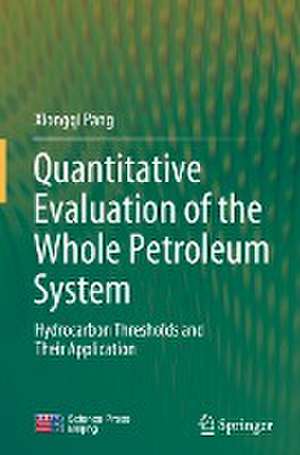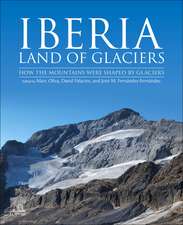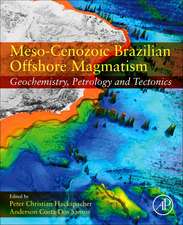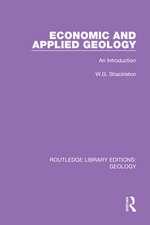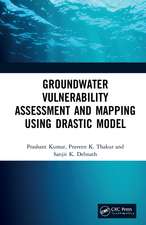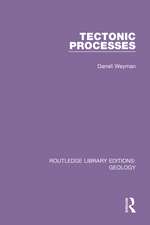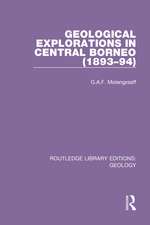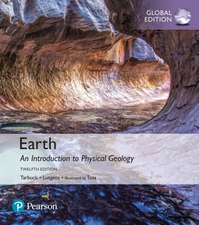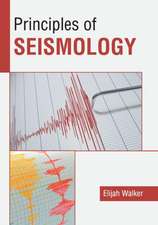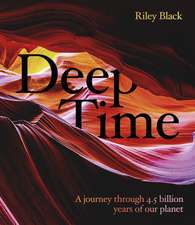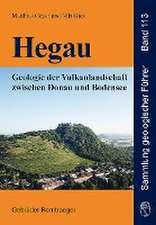Quantitative Evaluation of the Whole Petroleum System: Hydrocarbon Thresholds and Their Application
Autor Xiongqi Pangen Limba Engleză Hardback – 24 sep 2023
Preț: 1001.18 lei
Preț vechi: 1220.95 lei
-18% Nou
Puncte Express: 1502
Preț estimativ în valută:
191.67€ • 199.23$ • 158.91£
191.67€ • 199.23$ • 158.91£
Carte disponibilă
Livrare economică 15-29 ianuarie 25
Preluare comenzi: 021 569.72.76
Specificații
ISBN-13: 9789819903245
ISBN-10: 9819903246
Pagini: 454
Ilustrații: XXXIV, 454 p. 224 illus., 216 illus. in color.
Dimensiuni: 155 x 235 mm
Greutate: 0.98 kg
Ediția:1st ed. 2023
Editura: Springer Nature Singapore
Colecția Springer
Locul publicării:Singapore, Singapore
ISBN-10: 9819903246
Pagini: 454
Ilustrații: XXXIV, 454 p. 224 illus., 216 illus. in color.
Dimensiuni: 155 x 235 mm
Greutate: 0.98 kg
Ediția:1st ed. 2023
Editura: Springer Nature Singapore
Colecția Springer
Locul publicării:Singapore, Singapore
Cuprins
Introduction to Evaluation of Whole Petroleum System.- Unified Classification of Oil and Gas Reservoirs in WPS.- Buoyancy-driven Hydrocarbon Accumulation Depth in WPS.-Hydrocarbon Accumulation Depth Limit in WPS.- Active Source-rock Depth Limit in WPS.- Unified Model for Oil and Gas Reservoirs Formation.- Evaluation of Conventional Oil and Gas Reservoirs.-Prediction and Evaluation of Tight Oil and Gas Reservoirs.-Evaluation of Unconventional Shale Oil and Gas Resource.-Evaluation of Reformed and Destroyed Oil and Gas Reservoirs.- Evaluation of the Global Oil and Gas Resources.- Evaluation of the Global Potential Resource of the NGH.
Notă biografică
Prof. Xiongqi Pang has been engaged in research and teaching of petroleum geology and exploration. As the chief scientist of the National 973 Key planning research Project, he has been engaged in the research of hydrocarbon accumulation mechanism and distribution law in China's superimposed basins for 10 years. As the subject review expert and convenor of the National 863 high-tech project in the field of oil and gas, he has organized a series of major project approval and acceptance review, and served as the chief editor of Petroleum Science for 14 years in a succession. He has revealed the difference and correlation between conventional and unconventional oil and gas reservoirs, and put forward a new quantitative evaluation method for the Whole Petroleum System. He published more than 120 papers (SCI) in the famous journals of petroleum, energy, and earth science fields. He won 1 first level and 1 second level prize of National Science and Technology Progress Award, 10 first prizes of provincial and ministerial level of Science and Technology Progress Award, 12 software copyrights and 20 national invention patents. He also won the National Outstanding Teacher Award, and enjoyed special government allowance. In 2017, Prof. Xiongqi Pang was awarded LI-SIGUANG Geological Science Research Award, the highest honor award in the field of geology in China.
Textul de pe ultima copertă
This book introduces a complete quantitative evaluation system of the Whole Petroleum System (WPS) on theory and expounds the correlation and difference between conventional and unconventional oil and gas reservoirs and resources, with large number of well-prepared charts and novel expressions. It has important guiding significance for the exploration and development of conventional and unconventional oil and gas all over the world and provides valuable insights for reader with an interest in petroleum geology.
Caracteristici
Forms quantitative evaluation series techniques of Whole Hydrocarbon System through nearly 20 years of efforts Analyzes drilling results of a large amount of oil or gas reservoirs in wells and basins in China and around the world Reveals dynamic mechanism of conventional or unconventional reservoirs
